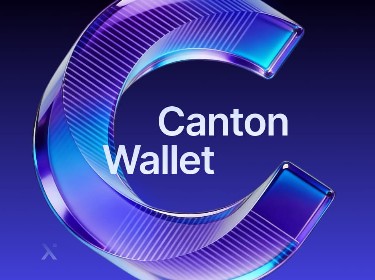Document Management Systems (DMS) have already become a common tool for many office workers. However, issues such as lack of trust and transparency, the inability to track all changes and edits in documents, and document duplication can be critical to the flow of ordinary documents, let alone legal ones. Blockchain, in its turn, is one of the most promising technologies with the ability to solve these problems.
Nowadays digitalization largely determines the competitiveness, efficiency, and success of a business, which is why companies around the world are actively introducing various tools and software to digitize and automate their workflows.
The use of special applications designed for accounting, customer management, online conferences, time management and productivity, and document processing is not new for many companies, but here is a real innovation – software based on the blockchain.
While blockchain technology is applicable to a variety of industries and solutions, in this article we will look specifically into legal document management. Read on to find out about document management systems, the peculiarities of managing legal documents, and how law firms can benefit from the introduction of blockchain technology into their workflows.
DMSs: what are they and how do they help?
The concept of Document Management Systems (DMS) is pretty simple: it involves the use of special software for storing, managing, accessing, and tracking electronic documents. First, paper information is digitized using a document scanner and then added to the system.
Technically, this doesn’t completely exclude the use of paper documents, but it significantly simplifies the lives of office workers. Instead of looking for a specific document in numerous folders and large piles of paper, managers can easily find it in the system in a matter of seconds. But the entire functionality of a DMS is not limited to only this aspect. Let’s take a look at some more advantages.
Greater security
When it comes to document management, security is probably the most important issue for any organization, regardless of size or industry. Not only does a DMS provide better management of confidential documents, but it also allows company secretaries to customize access to documents for certain individuals. Thus, sensitive information will be reliably protected and will remain open only to those to whom the company provides access.
In addition, an advanced DMS retains information about who viewed the document and what changes were made to it, so documents are easy to track and the risk of outsiders interfering with company documents is greatly reduced.
By the way, all of these security features are available in blockchain document management systems.
Better regulatory compliance
Meeting all compliance requirements is a rather difficult task, and failure to comply can lead to fines, revocation of licenses, and sometimes even criminal liability. DMSs play a role in reducing the risks of non-compliance, as they simplify document classification and storage.
Data backup
You don’t need to be an expert to understand the elementary risks of storing information exclusively on paper. Of course, fires, earthquakes, and floods are not things that happen every day, but no one is immune to them, right? Losing or permanently deleting electronic documents is also a very real risk. Therefore, companies that develop document management solutions make sure that they include a data backup and disaster recovery plan. Thanks to digital archiving of paper documents, the risks of losing or destroying them are quite low.
The only possible scenario would be the situation when a company employee destroys or removes docs on purpose. Unfortunately, that happens, too. To eliminate this risk, it is highly recommended to implement blockchain when choosing a document management solution as this technology doesn’t even imply such an option as deleting already recorded information.
![]()
24/7 access and better collaboration
If documents are stored in a DMS, company employees can access them anytime and from anywhere, so information exchange and collaboration becomes much easier.
Companies can also provide access to their DMS to external users, and their actions in the system can be tracked.
Statistics say that 82% of office managers admit that navigating different systems and locations to check the most recent versions of documents negatively affects their productivity. At the same time, 91% agree that their job would be easier if they could quickly find and access the most recent version of a document without worrying about which system it is in.
To significantly simplify office workers’ lives and increase their productivity, many regular and blockchain DMSs offer version control, which means that users can easily find and identify all document versions and even restore older ones. Why is that necessary? Sometimes users can make changes to documents that have not yet been approved by the company. If this happens, version control will allow company employees to review the changes and bring back the correct version of the document.
Easy document retrieval
Searching for documents and retrieving them can be very time-consuming. As noted in the 2019 Intelligent Information Management Benchmark Report, 86% of employees surveyed at various companies indicated that they have difficulty finding the documents and information they need for work. Moreover, 8 out of 10 office workers are forced to recreate existing documents because they cannot find them.
This serious problem can be resolved with document management software. In this way, office workers can reduce the time it takes to find documents to just a few seconds.
Cost savings by reducing document storage space
Commercial real estate never gets cheaper, but with constant paperwork, companies will need more and more space to store ever-increasing amounts of documentation. DMSs can significantly reduce the need for cabinets and storage boxes, thereby freeing up office space that employees can use, or allowing companies to rent smaller offices.
Generally, a well-designed DMS greatly improves the efficiency of any business and can provide valuable benefits such as enhanced security, improved collaboration, automated regulatory compliance, flexibility, increased business competitiveness, and higher productivity for office workers.
What features should a good DMS have?
Although many companies still haven’t completely given up on paper documents (especially for legal purposes), document management systems continue to be incorporated into the workflows of most enterprises. At the same time, it is important for businesses to know and understand what features should be built into their solution so that it can help the company and its employees as much as possible. Here’s what they need to look for in a DMS.
Usability
Even if a developer creates software that includes all the necessary features, but it’s inconvenient for the user, this will only serve to complicate the whole working process, and it won’t bring the desired results. Therefore, when contacting a software company, companies should pay special attention to the design of their new application and its usability.
Role-based access
An essential feature of a good document management system is the ability to set role-based access to specific documents since every enterprise has sensitive information that should only be accessible to certain employees.
The ideal DMS is one that allows administrators to set permissions for specific groups of workers, as well as change access settings if an exception needs to be made.
![]()
Document sharing and collaboration
Document sharing has become a typical feature of many DMSs, so it’s quite clear how it works. At the same time, collaboration is something that we need to take a closer look at.
Different types of DMS offer different options for collaboration. Some solutions give users the ability to work on a document simultaneously, while others allow their staff to edit documents only one after another. When choosing a DMS for business, make sure to indicate which type is more suitable for your enterprise workflow.
Data security
Data security is the number one concern for all companies. The most reliable document management solutions are those that offer encryption, real-time updates, role-based tiered access, and built-in proof of origin techniques to prevent fraud.
Blockchain
Blockchain-based document management systems are the next-generation software because blockchain provides much better safety and security. All the information stored on the blockchain is protected through encryption and hashing.
It’s worth mentioning that there is no technology that is 100% protected from hacker attacks, but let’s look at the statistics.
In 2020, there were 122 hacker attacks targeting three main areas: decentralized applications running on the Ethereum platform, cryptocurrency exchanges, and blockchain wallets. As estimated by Atlas VPN, hackers managed to steal around $3.8 billion throughout that year. But at the same time, there is a trend towards a decrease in the number of attacks related to the blockchain. For example, compared to 2019, when 133 attacks were committed, this number decreased by 8% in 2020. Experts predict a further decline in these numbers in 2021.
How are things with other technologies, systems, and applications? It is predicted that cybercrime will cost the world $ 6 trillion by 2021.
The numbers speak for themselves: unfortunately, no system is completely immune from attacks, but blockchain still has more chances to prevent them.
![]()
Since blockchain is a type of distributed ledger technology, it allows the system to be decentralized. When using centralized systems, there is always a central authority that controls the system and which can potentially change the documents stored in the DMS. Thanks to the decentralization provided by blockchain, companies can be sure that their information is protected and that the risk of corruption is completely eliminated.
Another significant feature that blockchain technology offers (a big advantage for any DMS!) is immutability. After a new document and information about it are added to the blockchain, it becomes impossible to edit, alter or delete it.
However, this doesn’t mean that after that employees won’t be able to work with the document at all. If they need to edit it, they will add the new doc and related information to new blocks in chronological order. That way, other employees can view the original document, check who worked on it, and what changes were applied to the subsequent versions.
Check out the full range of blockchain services from PixelPlex. Maybe we have exactly what you’re looking for
DMS for mobile
It’s taken as read that since smartphones provide our mobility, any system must have a good mobile version. When choosing a software developer who can design a custom document management solution, remember to find out if they will also be able to create a user-friendly mobile application.
Among other must-have features are e-signature tools, version control, and optical character recognition (OCR). While regular image scanning helps digitize paper documents, OCR reads the text of the image and makes it searchable in the system. The perfect document management system uses optical character recognition to automatically fill out metadata as well.
A brief word about legal document management
Document management systems are applicable in a myriad of domains, and the legal industry is no exception. However, legal document management software can be very different from generic DMSs as law firms have their own peculiarities of working with documents and specific requirements for electronic systems.
The use of special software for managing legal documents is necessary for law firms not only to process and store a large number of documents but also to manage cases and clients’ billable hours, and to communicate on projects.
On the whole, legal document management systems serve as a tool that helps law firms to easily organize, access, and manage their documents in the most efficient way.
The essentials of a document management system for law firms
![]()
Lawyers are super-skilled at understanding and analyzing complex and bulky legal documents. At the same time, legal documents require careful management in accordance with industry standards and regulations.
Legal DMSs, including blockchain-based ones, are designed to help law firms and their employees focus on their cases and day-to-day tasks, and do their job better, as modern technology now gives them an opportunity to delegate document management to dedicated legal electronic document management software.
Let’s find out about the specifics of legal document management and what features any legal DMS must have.
Matter-centric DMS
Matter is one of the first things developers should take into account when designing document management systems for law firms. The firms, in their turn, must only consider software that directly relates to their company’s matter.
A good DMS is one that is matter-oriented and acts as a virtual office with a filing cabinet for documents. Here users will be able to store and manage documents and keep matter-related emails and notes.
Integration with existing business platforms
It is important to know that a legal DMS doesn’t need to run autonomously and must have a public API or database connection.
To ensure smooth integration, you’d be well advised to turn to a custom software development company that specializes in the legal field and that can provide you with insightful blockchain consulting services. They are familiar with the various business platforms used by law firms and will know how to integrate a new legal document management system with the existing infrastructure.
Integration with email platforms
In the legal industry, emails are often equated with documents, which makes email management another essential feature that an ideal legal DMS should have. The best legal document management software should integrate with the email platform the firm uses and allow company employees to seamlessly save emails directly to a particular matter.
Document tagging
When it comes to managing legal documents, the importance of the document tagging feature shouldn’t be underestimated. Law firms work with numerous types of documents that must be tagged so that attorneys can quickly find the files they need for specific cases.
Encryption
As the legal industry deals with confidential documents, encryption has also become a vital feature for legal document management applications, as it provides high system security and reliability.
While blockchain technology offers encryption and uncompromised security, it is also recommended that law firms consider using legal blockchain-based DMSs.
Blockchain for legal document management: benefits and use cases
When blockchain technology started transforming multiple industries, the legal industry didn’t stand aside and now enjoys the benefits of this new technology. The 26th PwC survey on law firms shows that this field is ready for blockchain-powered transformation; 41% of law companies said that they’re planning to use blockchain for transactional legal services, 21% — for business support, and 31% – for providing high-value legal services. Below, we will consider what blockchain technology has to offer to the management of legal documents.
Regular DMS vs Blockchain-based DMS
The advantages of using document management systems are quite obvious, but there are significant differences between a conventional DMS and a DMS built on the blockchain, and they’re as follows:
- Decentralization
Regular DMSs are usually centralized systems, whereas blockchain is decentralized in nature. The absence of a central authority to govern the entire system significantly reduces the risks of corruption.
- Immutability
Conventional systems provide their users with CRUD commands, while blockchain doesn’t even have “edit” and “delete” options. If the user wants to change something in the document, they will need to add a new block of information to the blockchain without touching the original version of the document. This feature helps to track all changes made to the document and record who accessed it.
- Transparency
Being a distributed ledger technology, blockchain creates a shared ledger available to all parties to an agreement. They can view the history of the document, as well as chat and add new information to the network.
- Smart contracts
Legal contracts are usually backed by a physical signature. Unfortunately, manual processing of documents often leads to human error, and the legal sphere is also vulnerable to this. Blockchain can significantly improve the situation through the use of smart contracts. The terms of smart contracts are programmed into the system, and the contract is executed automatically if the terms are met on both sides.
Thus, the introduction of smart contracts makes it possible to eliminate human error and automate otherwise lengthy and routine processes.
Learn more about this extremely secure blockchain solution for creating, issuing, viewing, and auditing digital documents
Blockchain and the law: possible use cases
Blockchain clearly has many advantages, but the question is, how can this technology be applied in the legal industry? You will get an answer to this question below.
Letter of Credit documents
Blockchain can be used to store metadata about the validity of a physical legal contract, kept in an enterprise content repository. Blockchain technology will allow the system to verify that the document hasn’t been altered or changed.
Corporate filing
All corporate documents and transactions can be recorded on the blockchain. In this way, a time-stamped, permanent record of all corporate actions can be created, allowing company executives, lawyers, and staff to view all relevant information in chronological order.
Chain of custody & Audio and video evidence
Chain of custody in the legal industry involves the process of dealing with evidence. It begins with the collection of evidence and ends with its presentation in court.
During an investigation, evidence can change hands many times, which unfortunately creates opportunities for some people to spoil or replace evidence on purpose. Evidence information, as well as audio and video materials, can be recorded on the blockchain, which has an unalterable nature. Thus, judges and lawyers in court will be able to compare the original evidence that was recorded in the blockchain-based system with what was ultimately presented in court. In this way they can make sure that the evidence has not been changed.
Intellectual property rights
With blockchain, original content and product creators can upload, register, and time-stamp their original work in the public ledger. In this way, they will create irrefutable proof of ownership. In cases of illegal use by other persons, it won’t be difficult for lawyers to defend the rights of the product creator in court and punish the “thieves” of intellectual property.
Document notarization
There are many companies and startups that use blockchain technology to provide digital notary services. The document itself and all basic information about it can be recorded on the blockchain. By using a public ledger, it isn’t a problem to prove the authenticity of a document and its ownership. In addition, any changes to the document can easily be detected and tracked by time stamps on the blockchain.
Machine-to-machine payments
Machine-to-machine payments are associated with another type of technology – the Internet of Things (IoT). Blockchain and IoT work well with each other because smart contracts embedded in blockchain solutions provide a unique interface for machine-to-machine communication, and help automate and secure transaction processes.
Blockchain-powered arbitration system
Again, smart contracts provide the main benefits of blockchain-based arbitration systems. Users can program agreements into smart contracts that will then apply any arbitration awards. Blockchain-based arbitration systems allow the prospect of creating a global judicial system that will provide low-cost and high-quality online dispute resolution.
And there’s much more! Let’s not forget that blockchain-based document management software for law firms can also provide users with the ability to use electronic signatures. According to the Electronic Signature and Records Association (ESRA) report, e-signatures increase productivity by up to 83% in approvals and reduce document costs by 86%.
It’s also worth mentioning that blockchain generally is capable of handling a wide range of legal documents and procedures, including long-term contracts, testamentary matters, and other legal instruments.
Apart from handling public records, blockchain generally is capable of dealing with a wide range of legal documents and procedures, including long-term contracts, testamentary matters, and other legal instruments.
Conclusion
Blockchain offers many opportunities for law firms to benefit from the specific technology, from recording and processing legal documents and verifying them, to registering property rights, verifying ownership, and even building an online automated arbitration system. Blockchain can definitely bring a lot of advantages to both law firms and their clients.
However, finding a standard blockchain solution that will suit any law firm is almost impossible. Fortunately, PixelPlex, a software company with years of experience in blockchain solutions development, can help.
The firm has already designed DocFlow, a blockchain-powered document management system that is suitable for various industries, including the legal field. Using this application, law firms can log and hash legislation records, benefit from improved protection of digital identity and biometric data, and take advantage of automated taxation.
Contact us and we’ll fine-tune DocFlow to your needs, or develop a brand new custom solution that will significantly improve your company’s productivity and performance.




